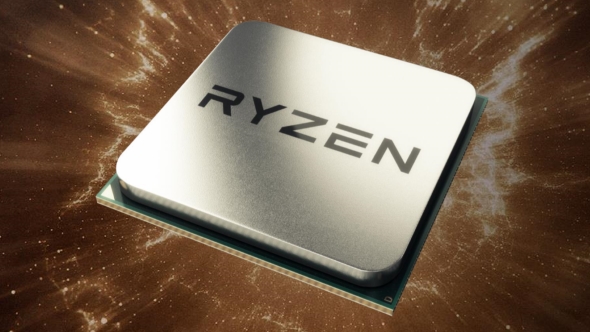A rumour, seemingly surfacing from the Taipei Game Show, claims AMD won’t be releasing six-core variants of their upcoming Ryzen processors and will be sticking to four and eight-core designs only.
What’s the best chip right now? Check out our guide to the best CPUs for gaming.
Thai site, Zolkorn, say they’ve recently spoken to reliable sources who have apparently confirmed there won’t be any hex-core chips for Ryzen.
We’re still expecting the Ryzen CPUs to come in three broad flavours to be roughly analogous to Intel’s Core i3, i5 and i7 structure. To separate their Zen-based chips out AMD will likely be turning their simultaneous multi-threading (SMT) tech off and on throughout the different levels of Ryzen.
That would then give them the option to have resolutely quad-core and quad-core / eight thread designs, straight eight-core chips and finally a top-spec eight-core / 16-thread setup.
We’ve delved into the Zen microarchitecture before and I’ve gotta say it’s not much of a surprise to see AMD not opting for a hex-core design right now. From what we can tell the Zen chips are built from four-core complexes of silicon logic goodness. These quad-core modules can be slotted together to form an eight-core Ryzen or even a 32 core Naples server chip.
In order to create a six-core version AMD would need to either create a half-scale module or find a way to disable two of the cores on one of the constituent four-core complexes. Neither of which, to be fair, would be a particularly elegant or efficient solution.

All of AMD’s Ryzen CPUs though will come multiplier unlocked so they can have their clockspeeds tweaked to within an inch of their lives. There may be specific overclocking variants of AMD’s next-gen processor range, but that doesn’t mean the other chips in the Ryzen family will be locked down.
The only real restrictions seem to come from the chipset side of the equation where the high-end X370 motherboards will have support for full range of Ryzen overclocking, the B350 will have a more limited form of overclocking while the entry-level A320 boards won’t support overclocking at all.
